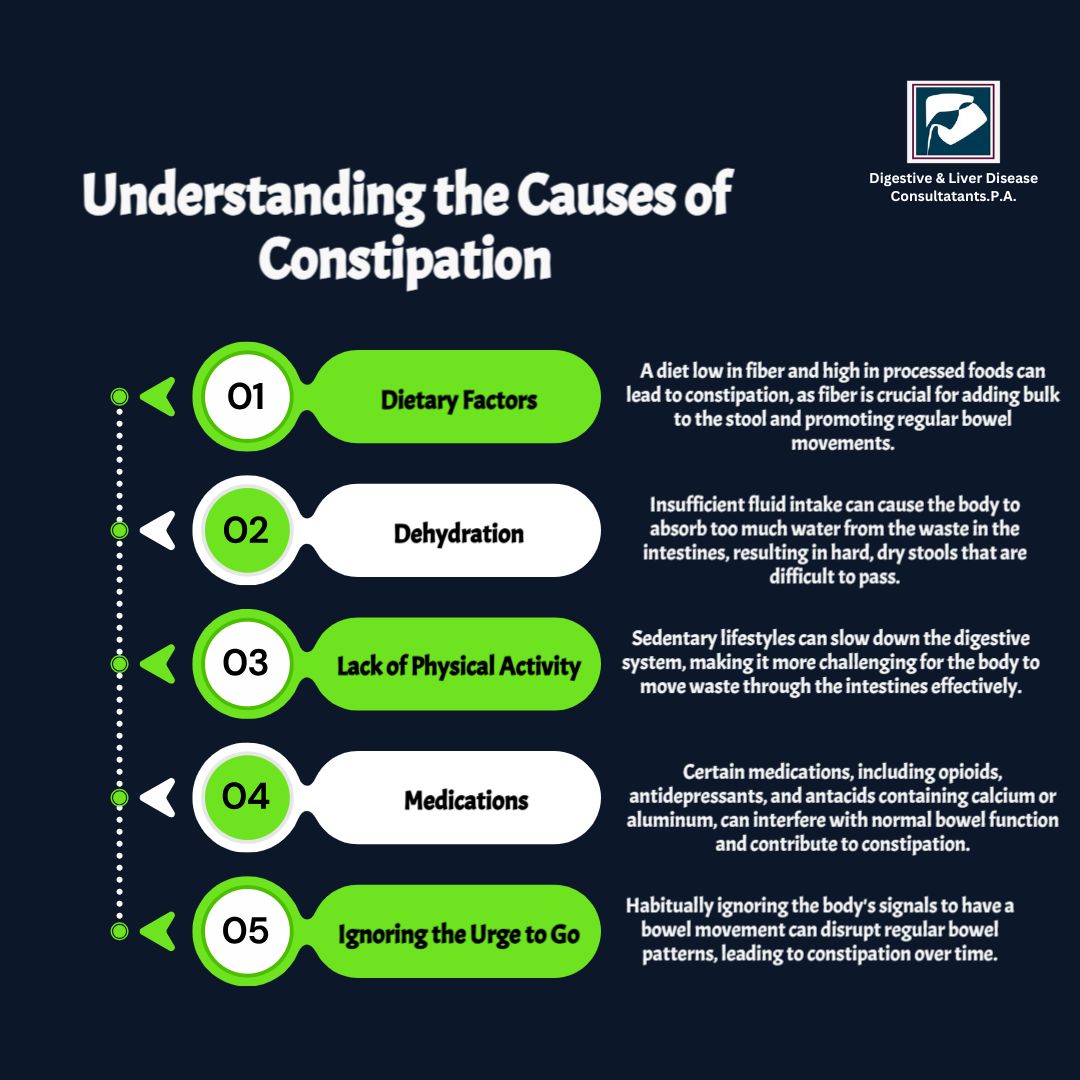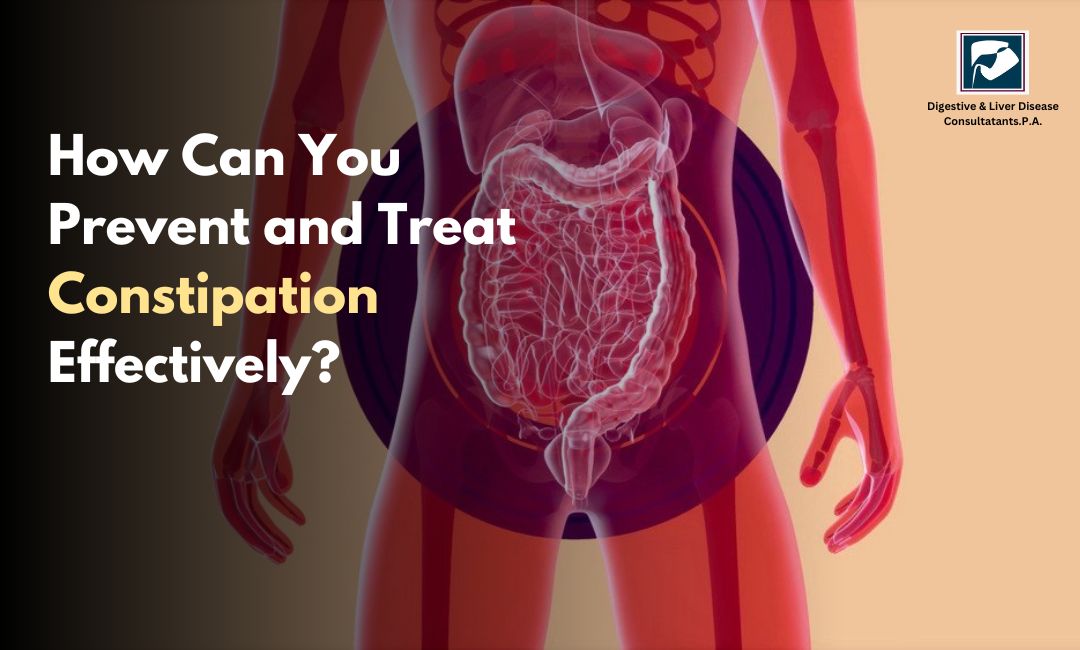Constipation is a common digestive issue that can affect anyone, regardless of age or lifestyle. It occurs when bowel movements become less frequent or difficult to pass, often causing discomfort, bloating, and a feeling of incomplete evacuation. Thankfully, there are practical ways to prevent and treat constipation, ensuring your digestive system stays healthy and functional.
What Causes Constipation?
Constipation can occur due to a variety of reasons, including:
Dietary Factors: A diet low in fiber and high in processed foods can slow digestion.
Dehydration: Not drinking enough water can lead to harder stools.
Lack of Physical Activity: Sedentary lifestyles can reduce intestinal muscle movement, aiding digestion.
Medications: Certain medications, like painkillers or antacids, can contribute to constipation.
Health Conditions: Disorders like irritable bowel syndrome (IBS), diabetes, or hypothyroidism can sometimes cause constipation.
Understanding the root cause of your constipation can help you address it more effectively.

Tips to Prevent Constipation
The best way to tackle constipation is by preventing it in the first place. Here’s how you can promote a healthy digestive system:
1. Increase Fiber Intake
Fiber is essential for healthy digestion. Foods rich in fiber add bulk to the stool and help it pass more easily. Incorporate these into your diet:
- Fruits like apples, pears, and berries
- Vegetables such as broccoli, carrots, and spinach
- Whole grains like oats, quinoa, and brown rice
- Legumes, including lentils, beans, and chickpeas
Aim for at least 25–30 grams of fiber daily to maintain optimal digestion.
2. Stay Hydrated
Drinking enough water is key to softening stools and preventing constipation. Aim for at least 8–10 glasses of water a day, and consider adding herbal teas or clear broths to your routine for variety.
3. Exercise Regularly
Physical activity encourages the natural movement of the intestines. Whether it’s a brisk walk, yoga, or a more vigorous workout, regular exercise can help keep your digestive system on track.
4. Establish a Routine
Train your body to follow a regular schedule for meals and bathroom breaks. Eating meals at consistent times can stimulate digestion, while setting aside time to use the restroom can help establish healthy bowel habits.
5. Avoid Holding It In
Ignoring the urge to go can make constipation worse. Try to respond to your body’s natural signals promptly to prevent complications.
Effective Treatments for Constipation
If you’re already experiencing constipation, there are several ways to address it:
1. Over-the-Counter Remedies
There are various medications available to relieve constipation, including:
Fiber Supplements: Products like psyllium husk can add bulk to stools.
Laxatives: Osmotic laxatives like polyethylene glycol or stimulant laxatives like senna can help move things along.
Always consult a healthcare provider before using any medications regularly.
2. Natural Remedies
Prunes or Prune Juice: Prunes contain sorbitol, a natural laxative.
Warm Beverages: A cup of warm water or herbal tea can stimulate bowel movements.
Probiotics: Yogurt or supplements containing probiotics can help balance gut bacteria and improve digestion.
3. Dietary Adjustments
If you’ve been eating a low-fiber diet, slowly increase your fiber intake to avoid bloating. Pair this with increased water consumption for the best results.
4. Medical Intervention
For chronic or severe constipation, it’s important to seek medical advice. Conditions like bowel obstruction or underlying illnesses might require specialized treatment.
When to See a Doctor
Occasional constipation is usually not a cause for concern. However, you should see a doctor if:
- Constipation persists for more than three weeks despite home remedies
- You notice blood in your stool
- You experience severe abdominal pain or cramping
- There are sudden and unexplained changes in your bowel habits
How Digestive & Liver Disease Consultants, P.A. Can Help
At Digestive & Liver Disease Consultants, P.A., we specialize in diagnosing and treating a wide range of digestive disorders, including constipation. Our experienced team of gastroenterologists uses advanced techniques and personalized care plans to address your unique needs.
We believe in treating the root cause, not just the symptoms. Whether it’s a dietary issue, medication side effect, or an underlying medical condition, our goal is to provide you with lasting relief and improved digestive health.
Our state-of-the-art facilities and compassionate care have earned us the trust of countless patients. If you’re struggling with persistent constipation or other digestive issues, we’re here to help you find solutions.
Conclusion
Constipation can be uncomfortable, but it’s often preventable and treatable with the right approach. By adopting a fiber-rich diet, staying hydrated, exercising, and seeking medical care when needed, you can keep your digestive system running smoothly.
If you’re dealing with chronic constipation or have concerns about your digestive health, don’t hesitate to reach out to Digestive & Liver Disease Consultants, P.A.






